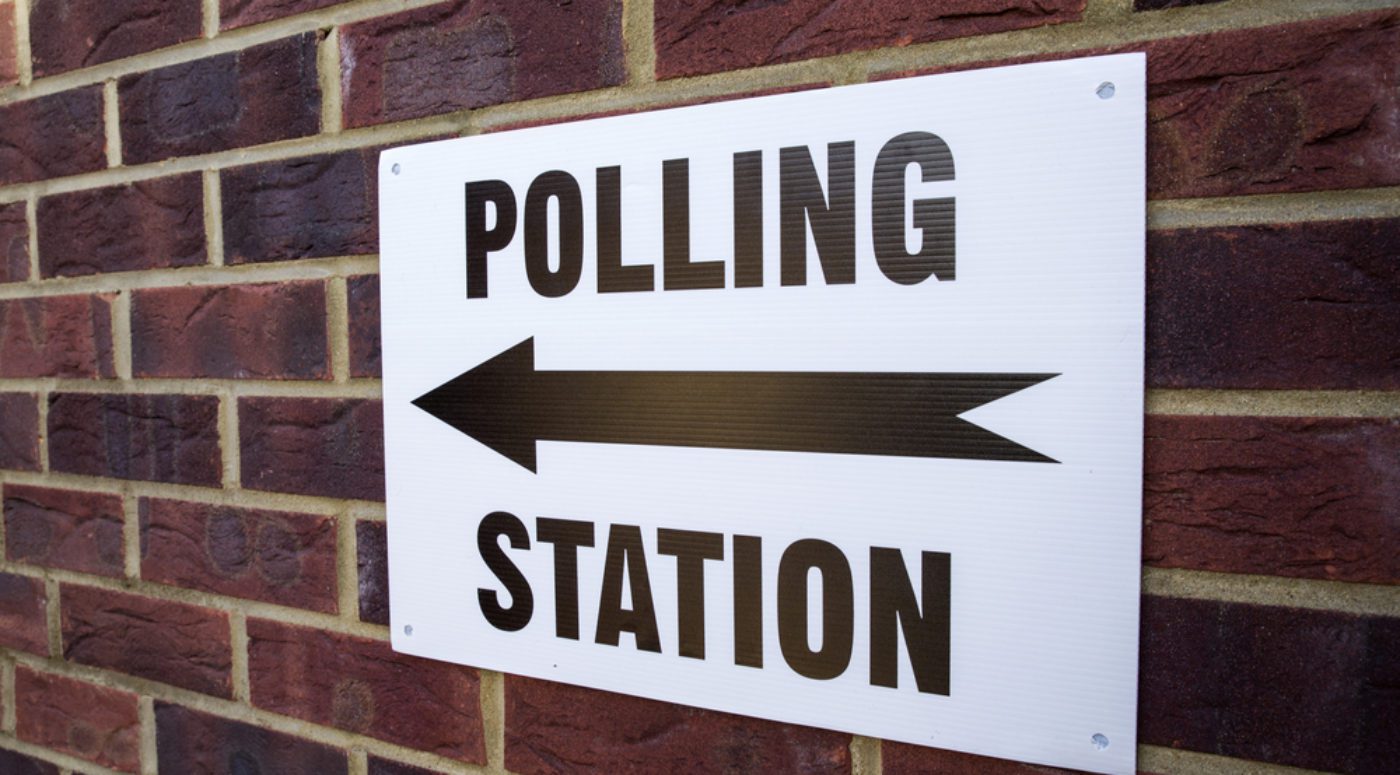

Understanding the gravity of electoral fraud within the UK’s democratic process is essential for anyone involved in or concerned about fair elections. Electoral fraud, a term encompassing various offences such as false registration, voting multiple times, and intimidation at polling stations, poses a serious threat to the integrity of democratic institutions. The maximum sentence for electoral fraud in the UK can be quite severe – up to two years’ imprisonment – reflecting the seriousness with which the legal system treats attempts to undermine or manipulate electoral outcomes. This article looks at the offence of electoral fraud and outlines key considerations relating to sentencing.
What is the offence of electoral fraud?
Electoral fraud encompasses a variety of illegal acts designed to alter the outcome of an election or referendum. Governed by laws including the Representation of the People Act 1983, this offence can seriously undermine the integrity and fairness of democratic processes. Key elements include deceitful practices aimed at manipulating election results, whether through altering vote counts, influencing voter eligibility, or disrupting the normal course of voting.
What are some examples of the offence of electoral fraud?
Examples of electoral fraud are wide-ranging but typically involve:
- Falsely pretending to be someone else at a polling station to cast a vote. For example, someone might attempt to vote using the identity of a deceased person or by using someone else’s identity without their consent.
- Tampering with or fraudulently filling out postal voting ballots. For instance, someone might intercept postal ballots and cast votes on behalf of the intended recipients without their knowledge or consent.
- Incorrectly or fraudulently nominating someone else to vote on their behalf if they are unable to attend the polling station. Proxy vote fraud can occur if proxies are coerced, bribed, or misled into voting against the wishes of the voter or if the proxy votes multiple times using different identities.
- Offering bribes or other inducements to voters in exchange for their votes is a form of electoral fraud. This could involve offering money, gifts, or other incentives to voters in exchange for their support.
- Physically tampering with ballot boxes or the voting process to alter the outcome of an election. For example, ballots might be removed, added, or altered to change the results in favour of a particular candidate or party.
- Registering false or ineligible voters in order to inflate the number of supporters for a particular candidate or party is another form of electoral fraud. This might involve registering individuals who do not exist or who are not eligible to vote, such as non-residents or minors.
- Exceeding legal spending limits or failing to disclose accurate information about campaign finances, giving the candidate an unfair advantage in the election process.
The legislation governing these actions is very clear that such actions not only threaten democracy’s foundation but also carry severe penalties for those found guilty. That is why the message to voters has always been to report suspicions immediately to maintain trust in electoral systems.
What is the maximum sentence for electoral fraud?
The Representation of the People Act 1983 is the primary legislation governing this area. Under this act, various forms of electoral misconduct are identified and penalised accordingly. The maximum sentence for someone convicted of electoral fraud can be up to two years’ imprisonment and/or an unlimited fine, reflecting the seriousness with which these offences are viewed.
Specific sentences depend on the nature and severity of the offence committed.
- Personation (voting as someone else): Up to 2 years’ imprisonment
- False statements as to candidate: Up to 1 year’s imprisonment
- Tampering with nomination papers or ballot papers: Up to 2 years’ imprisonment
These examples illustrate just how varied electoral fraud can be and subsequently, how penalties are tailored to fit specific offences.
Note that real-life cases have seen varying sentences handed down by courts, often influenced by factors such as intent, impact on election results, and previous criminal history. For instance, recent cases include individuals receiving custodial sentences for attempting to influence local council election outcomes through fraudulent means.
Moreover, beyond immediate legal consequences, individuals found guilty face long-term repercussions including damage to reputation and future employability in certain sectors.
By maintaining strict penalties for electoral fraud offences, English law aims not only to punish but also deter future violations thereby safeguarding democratic processes.
What factors influence sentencing for electoral fraud?
When judges consider the sentence for someone found guilty of electoral fraud, they weigh a variety of factors. These can significantly affect the outcome, determining whether a convicted individual faces years behind bars or receives a lesser penalty such as community service or a fine.
Factors include:
- The severity and impact of the offence play pivotal roles. For instance, if an action directly influences the result of an election, this is likely to result in a harsher sentence. Similarly, offences that undermine public trust in the democratic process are taken particularly seriously. The method and scale of the fraud are also crucial; sophisticated schemes involving large networks of co-conspirators may attract more severe penalties than isolated incidents.
- Judges also take into account the defendant’s intent and role in the crime. Was there premeditation? Did they orchestrate the scheme, or were they merely following orders? Those seen as masterminds face stiffer sentences compared to minor players. Furthermore, any previous convictions related to electoral misconduct will undoubtedly influence sentencing decisions.
- Efforts made by defendants to rectify their actions can mitigate sentences. If individuals show genuine remorse, cooperate with investigations or take steps to prevent future offences, courts might be inclined towards leniency.
- Lastly, victims’ statements and broader societal impacts are considered. Electoral fraud doesn’t just harm specific candidates; it erodes public confidence in electoral systems and democracy itself. Sentences often reflect not only punishment but also deterrence—sending a clear message about society’s intolerance for such crimes.
Understanding these factors underscores how complex sentencing for electoral fraud can be in the UK. More information on the nuances of punishment can be found in the Crown Prosecution Service guidance on the matter.
How can a solicitor help with reducing the sentence for electoral fraud?
When facing charges of electoral fraud in the UK, having an experienced solicitor by your side can make a significant difference in the outcome. Their expertise not only lies in understanding the complex legal framework but also in employing strategies that could potentially reduce any sentences you might face.
First off, solicitors are well-versed in the intricacies of electoral law and will scrutinise every detail of your case. They’ll look for procedural errors or instances where your rights may have been infringed upon during the investigation or arrest process. Identifying such flaws could lead to a reduction in charges or even dismissal of the case altogether.
Moreover, they play a crucial role in plea negotiations. If pleading guilty is seen as the best course of action, solicitors can negotiate terms that favour lesser penalties. They’re adept at presenting mitigating factors such as lack of previous convictions, cooperation with authorities, or genuine remorse for actions taken. These arguments can be persuasive in court and lead to reduced sentences.
Solicitors also prepare you thoroughly for court appearances. This preparation includes coaching on how to answer questions effectively and how to present yourself during hearings — aspects that significantly impact sentencing outcomes.
Finally, they’re instrumental in appealing against verdicts or sentences deemed unfair or excessively harsh. With their deep knowledge of legal precedents and appellate court procedures, solicitors can challenge decisions successfully, often securing more favourable outcomes for their clients.
In summary, then, a solicitor can help your case by:
- Scrutinising case details helps identify legal errors.
- Negotiating pleas can result in lesser penalties.
- Preparing clients influences court perceptions positively.
- Appealing decisions offers another chance at justice.
Understanding these avenues demonstrates why enlisting a specialised solicitor’s services is paramount when accused of electoral fraud within the UK’s judicial system. Their guidance not only navigates you through legal complexities but significantly enhances chances for more lenient sentencing if found guilty.
Where to get more help
Navigating the complexities of electoral fraud and understanding the potential consequences can be daunting. If you’re looking for more information or need assistance, get in touch with a qualified electoral fraud solicitor at the earliest opportunity. Our team at Stuart Miller Solicitors have decades of combined experience in this area with numerous successful defence cases and can assist without delay. Contact us today for a free consultation.
OUR COMMITMENTS TO YOU:
-
Responsive
A legal expert will consult you within 24 hours of making an enquiry.
-
Empathetic
We will always treat you with trust, understanding and respect.
-
Specialised
Your case will be handled by an expert who specialises in your type of offence.
-
Proactive
We will take early action to end proceedings as soon as it is practically and legally possible to do so.
-
Engaged
You will be kept updated on your case at all times. We will provide a named contact available to answer your questions.
-
Caring
We understand this is a difficult and stressful time for you and your family. Our team will support you every step of the way.
-
Tenacious
We will never give up on your case. We fight tirelessly to get you the best possible outcome.

